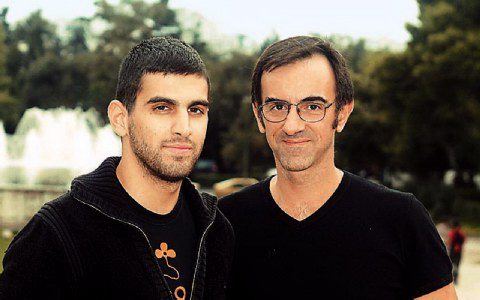Greece’s Supreme Court has upheld a decision to void a gay couple’s marriage, nearly ten years after they tied the knot.
Themis Katsagiannis and Dimitris Tsambrounis tied the knot on the island of Tilos nearly a decade ago, in June 2008.
Greece does not permit same-sex marriages, but the couple were permitted to wed by the island’s pro-LGBT mayor, who agreed to register their union.
There was technically no explicit legal ban on same-sex marriage at the time, as the country’s civil marriage law stated marriage was between “two persons”.
However, just a few months before the couple’s tenth wedding anniversary, their union was struck down by the this week.
Greek newspaper I Kathimerini reports that the Supreme Court ruled the couple’s wedding was not legally recognisable.
The court ruled that the law “is considered to reflect the moral and social values and traditions of the Greek people, who do not support the legalization of marriage for homosexual couples”.
According to the newspaper, the couple are expected to take their case to the European Court of Human Rights.

The ECHR has not previously upheld same-sex marriage rights, though a string of rulings have bolstered basic rights protections across the EU.
The couple’s marriage came under legal threat within weeks of their union in 2008, and it was quickly declared voic.
The case has slowly worked its way through the courts.
Speaking to GSN in 2012, Mr Katsagiannis said: “Up until when we got married, recognizing same-sex relationships wasn’t really an issue or in people’s minds.

“But after that happened there was a lot of coverage by the media and it really put the issue on the map for Greece and it’s still much more discussed since then.
“Local church parties and the extreme right came out really against our marriage, but it allowed the political left to come out in favor of gay marriage and we did have a lot of support from many people. That was a really positive aspect.”
Greece passed a law allowing same-sex civil unions in 2015, after strong resistance to same-sex marriage.
The civil union legislation was passed by a vote of 193 to 56, with 51 abstentions.
Last year the country passed a bill expanding the rights of same-sex couples and ensuring equal protection in workplaces regardless of gender, religion or sexual orientation.
However, Greece lags behind much of Western Europe on LGBT rights.
Same-sex adoption, equal marriage, and IVF for lesbians are all still banned in the country.
The country has a long way to go before legalising same-sex marriage, which is opposed by the Orthodox Church.
An EU court is currently considering a case that could bring sweeping new rights for gay couples across the EU.
The European Court of Justice is currently considering the case of Romanian man Adrian Coman, who tied the knot to his American partner, Claibourn Robert Hamilton, in Belgium in 2010.

Despite their legal marriage in one EU state, Romania had sought to resist the activist’s attempts to gain residency rights for his partner, as it does not allow same-sex marriage.
But the ECJ case will consider whether provisions in the Charter of Fundamental Rights of the European Union relating to freedom of movement grant rights to same-sex spouses.
It could have an impact well beyond Romania, setting a precedent for the many European countries that do not currently allow same-sex couples to marry.
13 EU states allow same-sex couples to marry and several others allow civil unions.
Romania, Bulgaria, Slovakia, Slovenia, Poland, Lithuania and Latvia are among the states that do not recognise same-sex partnerships.
The ECJ case will consider whether “the term ‘spouse’… includes the same-sex spouse” in Mr Coman’s case.
It will also consider whether EU law “requires the host Member State to confer the right of residence on the same-sex spouse of a citizen of the European Union”.
If Mr Coman’s challenge is successful, the ruling could require all EU states to grant legal recognition and residency rights to same-sex couples who have been married elsewhere, as would be the case for heterosexual couples.







